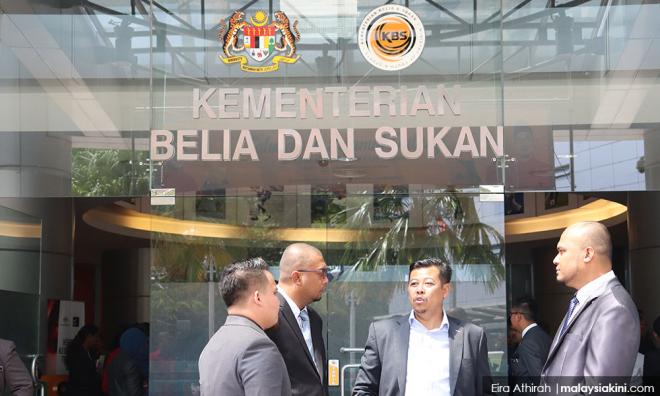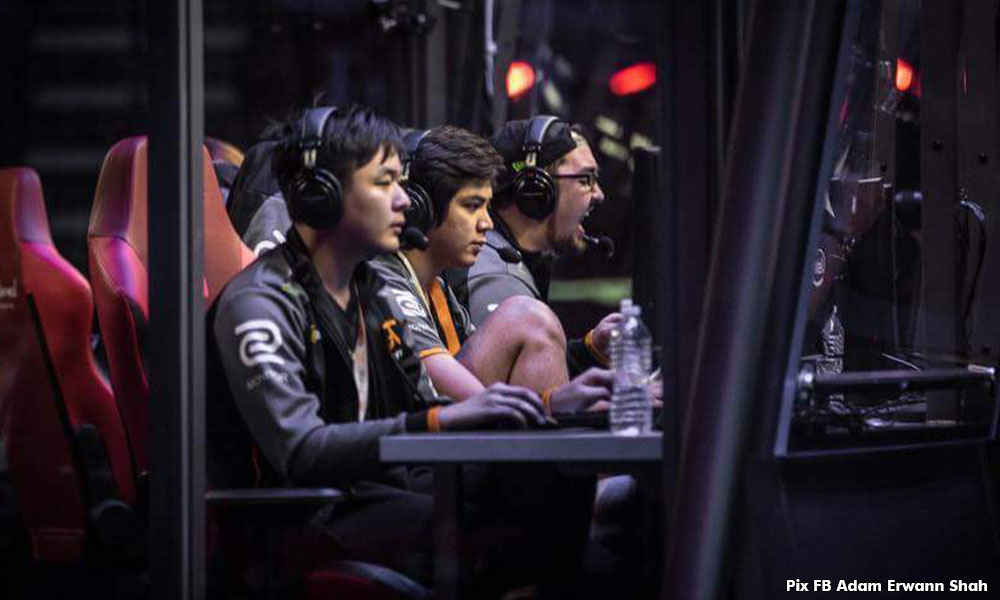
MP SPEAKS | The irony of this latest health crisis wrought by Covid-19 is that we are told we cannot do sports even though sports is the doctor’s usual prescription for health and general wellbeing.
For two months, Malaysians were in a semi-lockdown under the movement control order (MCO). No outdoor sports activities were allowed. No more sweating satisfaction after jogging. A Penang doctor was charged in court for jogging in the park.
People were arrested for playing football and along with other sports leagues, Malaysia's popular football leagues were postponed and no one knows whether the games can pick up from where they left after the MCO.
In fact, even the Olympic Games scheduled for July this year in Tokyo, Japan has been rescheduled to July 2021. At the time of writing, all indoor sports, contact sports, water sports, stadium sports and even outdoor sports with more than 10 persons are not allowed under conditional MCO.
One thing is clear from this pandemic - we will see behavioural changes taking place in almost every sphere of life. From the simple handshake which is now replaced with some kind of no-contact greeting, to gatherings which now require social distancing, experts are calling these behavioural changes, the "next normal".

And the next normal will definitely affect how sports are being conducted from now on. The question I want to address here is, what should the government do to deal with the next normal in sports?
The sports sector in Malaysia is governed by the 2009 National Sports Policy (Dasar Sukan Negara). One of the works left behind by former youth and sport minister Syed Saddiq Syed Abdul Rahman and I was to kickstart the review and update of this ten-year-old document.
This crisis provides an opportunity for current policymakers to rethink sports in light of new interests, new discoveries, new technologies and definitely the "new normal".
One of the plans this year was to introduce a "Fit Malaysia" app which aims to personalise and gamify fitness using a virtual platform. The idea is to incentivise fitness activities with Fit Points earned from every calorie burned which in turn can be exchanged for products and services from participating vendors.
Eventually, our ambition is to allow Fit Points to be used to pay utility bills or even income tax. The fundamental principle behind this is, instead of the government paying for our hospital bills, the government should pay us to exercise more.
This is the best time to introduce such an app which nurtures a sporting culture by allowing people to personalise how they can do sports in their life, tailoring it for the next normal.
With the pandemic looming large, much of the industry will be affected. Gyms, swimming pools, badminton courts, and other sports facilities are already closed for two months.
In fact, businesses related to sports such as sports apparel, sports equipment, event management, sports medicine, stadium and sports facilities management will all be badly affected.
Many of those working in the sports industry are already seeking government cash transfer assistance. The government must promptly provide a sectoral recovery strategy for the industry.
Such a strategy must include a clear timeline on when to reopen, a workable guideline on how to reopen and an effective lifeline to assist affected businesses.

The economic lifeline may include:
i) business continuity grants;
ii) assistance for business process conversion, e.g. digitalisation, implementing public health measures in their facilities;
iii) tax-cut to incentivise sports, e.g., companies can claim corporate tax reduction if they provide a gym membership to their employees, organise sports events or provide sports sponsorship; and
iv) perhaps as a temporary measure, all government agencies should consider utilising existing private-sector sports facilities for their sports-related programmes as a way to sustain the industry.
We are fortunate that in July 2018, the Communications and Multimedia Ministry launched a dedicated sports digital channel because one of the biggest adaptations to the next normal in sports is the expansion from live spectacle to digital content.
The government should utilise the digital channel to strategise how to deliver digital sports content, including broadcasting "spectator-less" games to TVs, computers and smartphones.
Throughout the MCO, some of our national athletes such Pandelela Rinong and Goh Liu Ying live-streamed their workout routines on social media. Their programmes were hugely popular. The government should facilitate our national athletes to produce their own "fitness TV show".
The free sports channel should also fill in the gap for pay-TV, experimenting with valuable but perhaps less lucrative or even expensive-to-produce content such as documentaries on the lives of our national athletes and para-athletes.
More publicity should be given to our national sporting heroes, especially in parasports.
In November 2019, the Youth and Sports Ministry launched a five-year development plan for Malaysian e-sports. It aims to develop esports holistically from talents to infrastructure, legislations and the supporting ecosystem.

The current government should expedite the implementation of this development plan in order to take advantage of the rise in this billion-dollar sector currently filling the void left by the sudden disruption in traditional sports.
In fact, with the advancement of technology, we are seeing more and more hyper-realistic e-sports which simulates real-world sporting dynamics, including their movements.
In this aspect, certain e-sports may actually be a good alternative entry-level training ground, with minimal human contact for young athletes in sports such as racing, golf, dodgeball, etc.
Conversely, esports also provides athletes in those sports with an alternative career option especially post-retirement. I have personally worked with at least one former national athlete who is now involved in the esports version of his old sports.
The government must regroup, rethink and re-strategise sports. Two months of the MCO have gone-by, but many authorities including the Malaysian Health Ministry have warned that this pandemic will be with us for a while. As such, the government, especially the Ministry of Youth and Sports must quickly regroup, rethink and re-strategise how the sports sector can adapt to the next normal.
STEVEN SIM is member of Parliament for Bukit Mertajam and former deputy minister for youth and sports. - Mkini



No comments:
Post a Comment
Note: Only a member of this blog may post a comment.